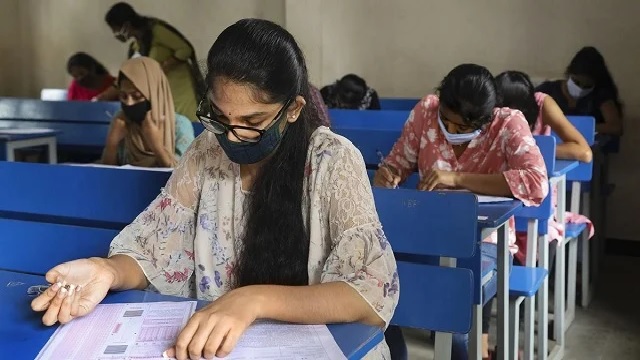SSC aims to conduct competitive exams in 22 Indian languages says Union Minister
Union Minister Jitendra Singh revealed that the Staff Selection Commission plans to conduct competitive examinations in 22 Indian languages.
New Delhi: Union Minister Jitendra Singh revealed on Sunday that the Staff Selection Commission (SSC) plans to conduct competitive examinations in 22 Indian languages in the near future. This initiative aims to provide a level playing field for all aspiring candidates, eliminating language barriers.
Addressing the valedictory session of the ‘Bharat Bhasa Utsav: Technology and Bharatiya Bhasha Summit,’ Singh emphasised that this move was prompted by Prime Minister Narendra Modi’s vision.
Beginning this year, SSC examinations have been conducted in 13 languages, which include 11 regional languages, Hindi, and English.
Before 2014, candidates were restricted to choosing either Hindi or English as the medium of examination. Additionally, Singh highlighted the poor quality of English-to-Hindi translations during that period, which put many students at a disadvantage.
Looking ahead, the SSC aims to expand its competitive examinations to include 22 Indian languages listed in the Eighth Schedule of the Constitution, according to a statement from the Personnel Ministry.
Furthermore, Singh noted that examinations such as JEE, NEET, and UGC are already being conducted in 12 Indian languages. This significant decision is expected to boost the participation of local youth, enhance their chances of success, and promote regional languages.
Singh commended the progress made in promoting Indian regional languages over the past nine years under Prime Minister Modi’s leadership. He mentioned the prime minister’s call for medical and engineering education to be offered in regional languages like Hindi, Tamil, Telugu, Malayalam, Gujarati, and Bengali.
Singh also highlighted the historic decision in the new National Education Policy (NEP) to prioritise students’ mother tongues in primary, technical, and medical education. He described the NEP as the most ground-breaking education reform in India since Independence, set to align the country’s education system with global standards.
Moreover, Singh mentioned that 29 institutes across 10 states in seven regional languages have been identified to provide engineering education in one or more disciplines. He emphasised that the NEP aspires to double the number of Indians in higher education, already surpassing the combined figures of the US and EU.
In conclusion, Minister Singh pointed out that the NEP-2020 would bolster the start-up ecosystem, opening up new career and entrepreneurship opportunities for Indian students and youths.




 Ms Kalinga
Ms Kalinga